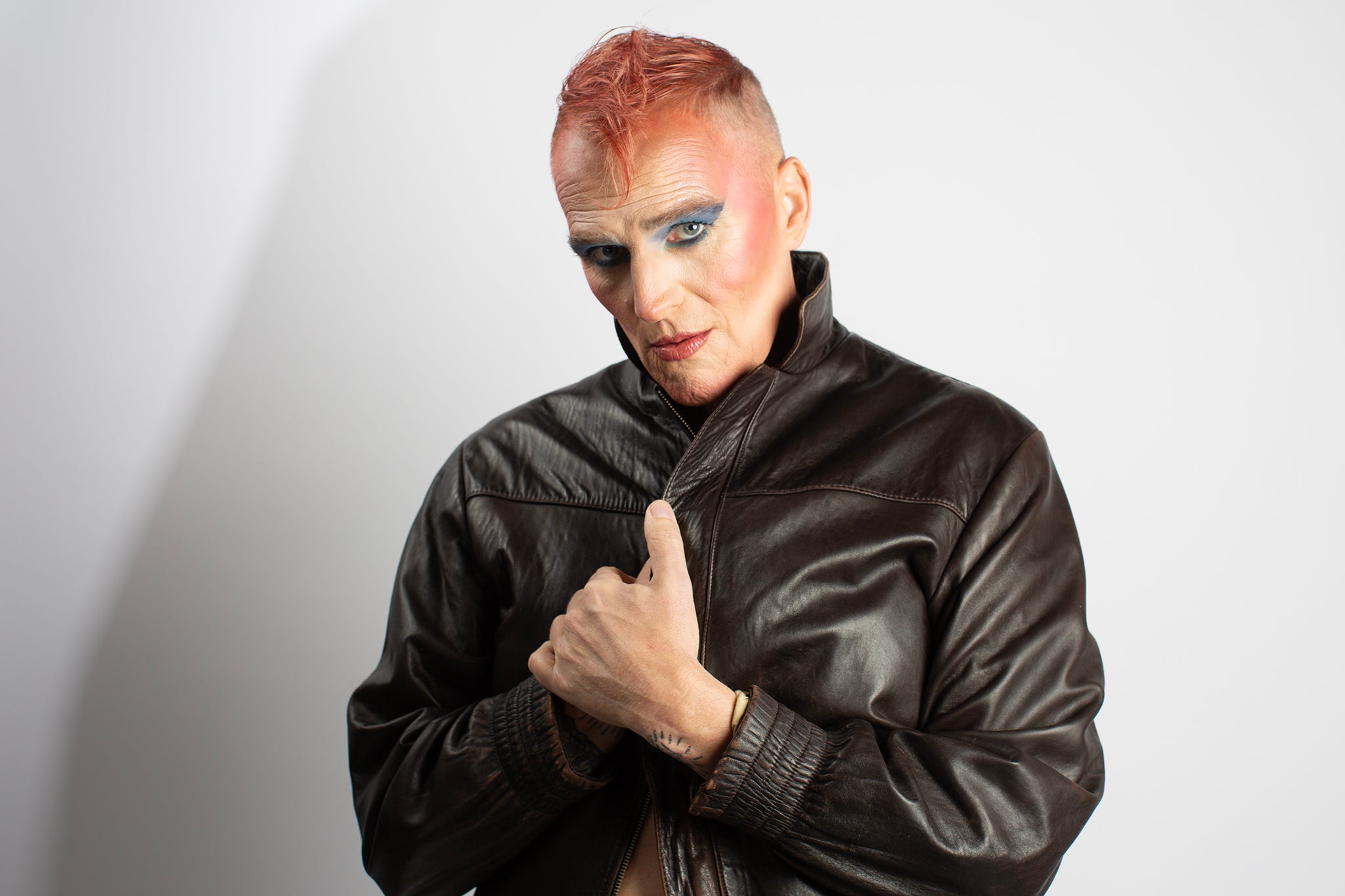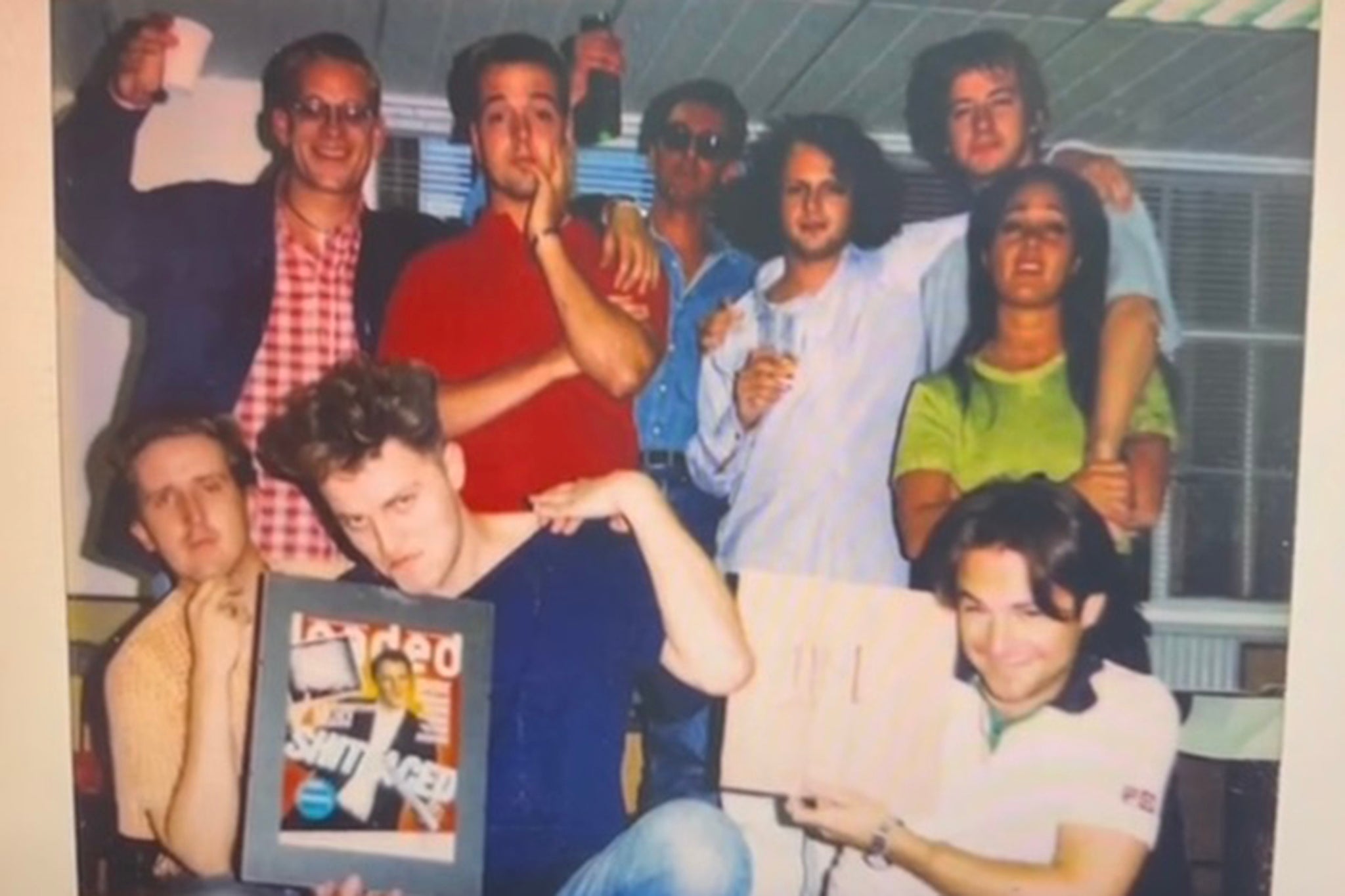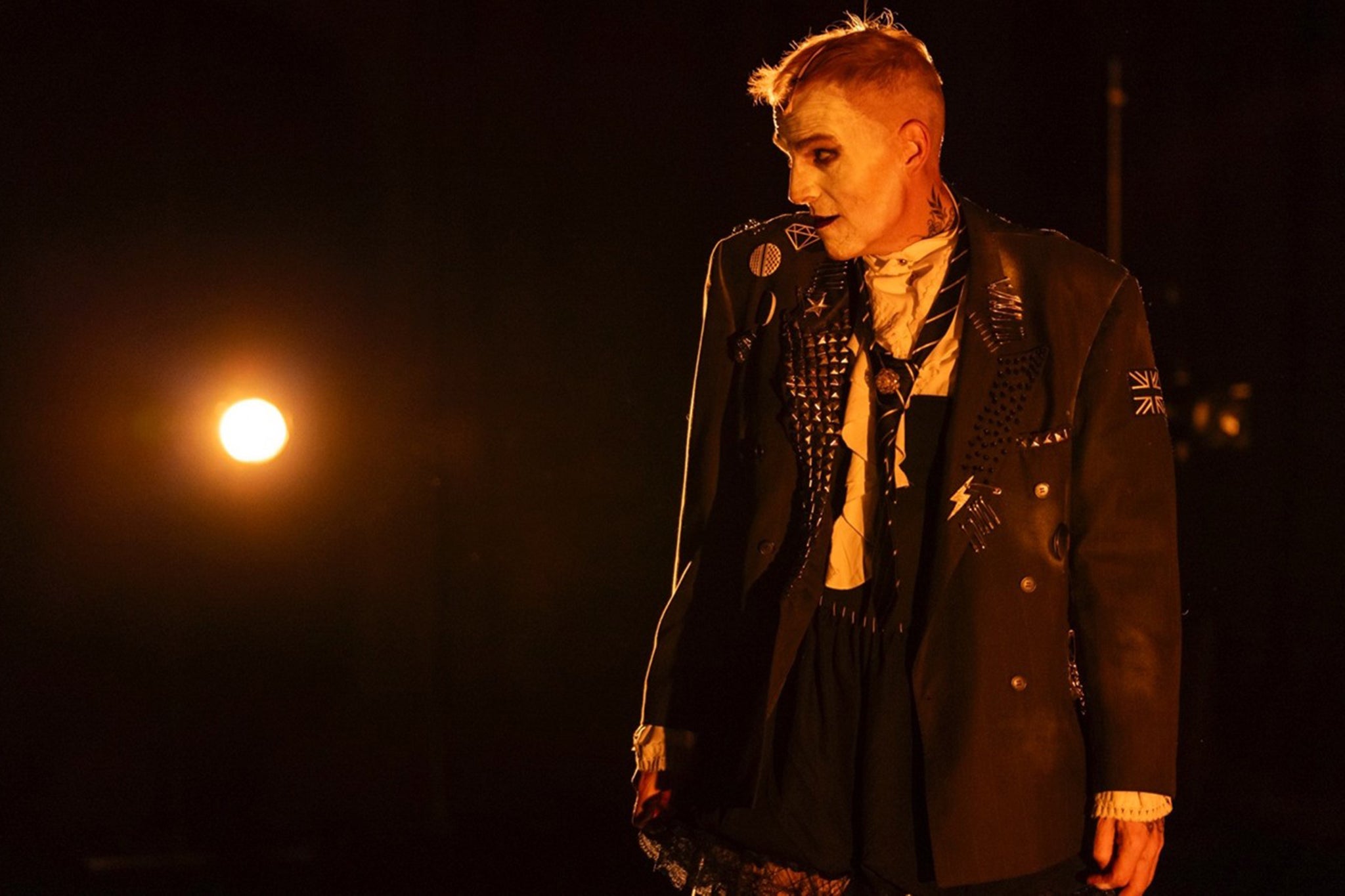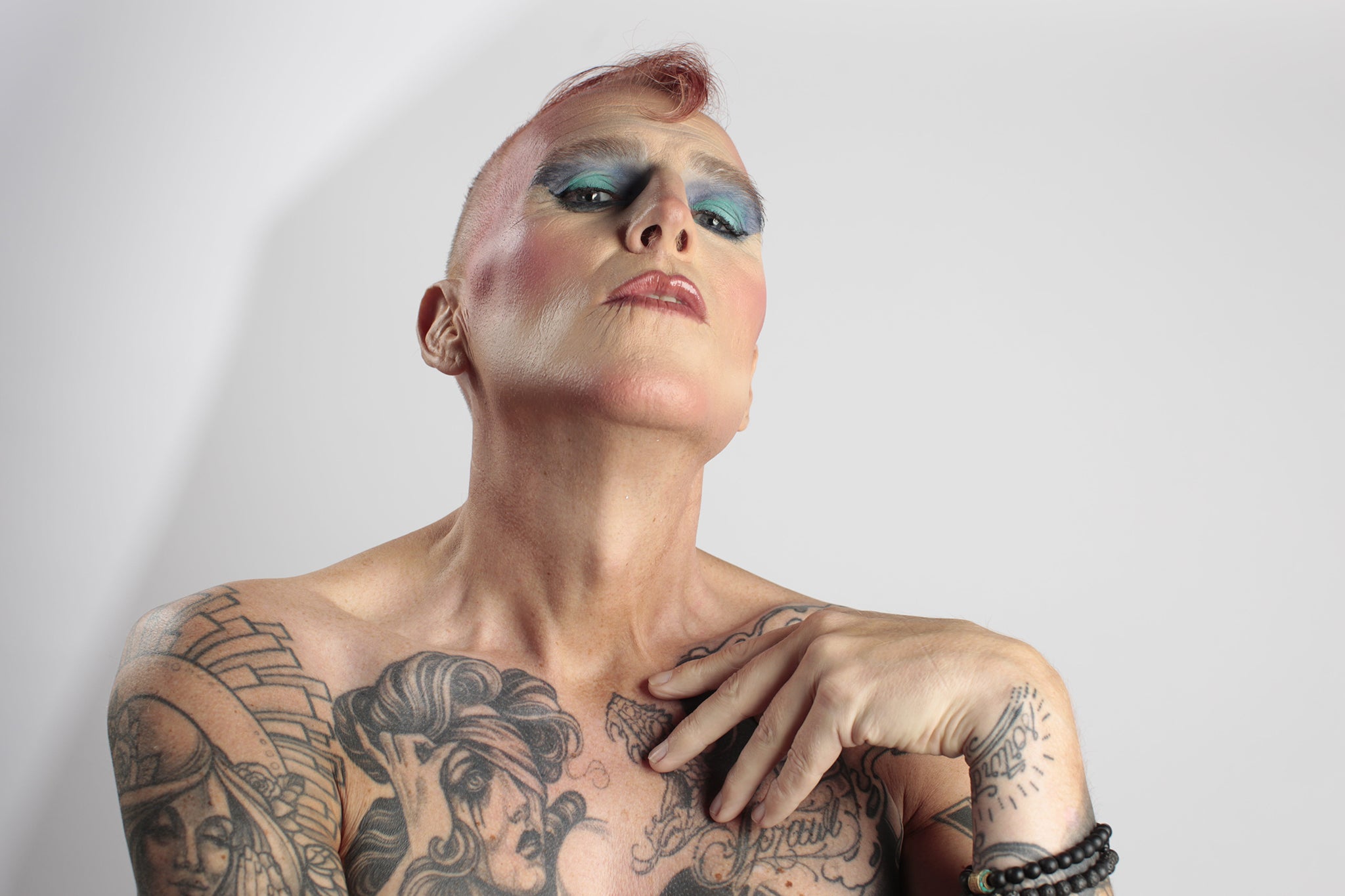The Independent's journalism is supported by our readers. When you purchase through links on our site, we may earn commission.
I was known as the scary editor at Loaded magazine before finding my true identity as a trans woman
As part of the Nineties lad mag era, Kristen Smyth used masculine bravado as armour to make herself feel safe. But after spiralling into a toxic mess of addiction and mental health problems, she realised what that tough exterior had been covering up all along…

There was a moment around eight years ago that I’ll always remember. To most people, it wouldn’t have seemed like anything special. Perhaps it would even have gone unnoticed, or at least quickly forgotten. I’d been walking around Soho at the time, wearing some 5in, red block heels – these were serious heels (and I’m already 6ft 1in). I felt confident, womanly – finally, I felt like me. And I noticed a little boy spin around and, almost frozen in wonder, stare intently at me.
I had become used to staring since I transitioned eight years ago. Especially when I visit London, where I grew up, I tend to turn heads. Sometimes it’s people like the man in the street who didn’t want me to walk his way who notice me, or the mother at Oxford Circus who told her two kids to “get away from that freak” one afternoon. But then there are the stares like that one from a child in Soho. I recognised his curiosity – certainly I had felt it myself many years ago. “You might just have changed that boy’s life,” a friend with me at the time turned to me to say.
It had been a long journey to that point, so much of it inhabited by contradictions. Long before I was Kristen, I had been the production editor at 1990s lad mag, Loaded, where I was known as the “enforcer” – the tough one who kept the chaos on schedule. I was there to keep the pages running, keep everything going to get the magazine out while everything (and everyone) was unravelling. Including me.
I hadn’t always dreamt of being in magazines, but I did love writing and knew I wanted to be involved in some sort of publishing. I left university in 1989, having spent years living for the Hacienda in Manchester.
That was the start of it: the energy, the club culture, the music. My first job ended up being at The Big Issue, which was incredible, but also where my turbulence eventually got me kicked out – one afternoon, I turned up to interview Terry Christian so drunk from a lunch with the vendors that Christian called security because I was “scaring” him. Which wasn’t easy considering he was known as a very tough interviewer for The Word, a cult 1990s Channel 4 show, at the time. Still – fair enough.
Shortly afterwards, I got a call to say that a new magazine – Loaded – was about to launch. By then, I was deep in addiction, “across multiple platforms”, as I like to say. But James Brown, the editor, was so smart, so fast, so funny, so compelling that I knew this was the shot.
The staff were scared of me too – but I reckon one of the reasons why I was a reasonably efficient (or terrifying, depending on who you ask) production editor was because I was so suppressed. I did two weeks of hyper-focused work to get the magazine out every month – followed by two weeks of self-sabotage; partying, spiralling, blowing myself up completely. I don’t know how I managed to keep it going for 18 months.
Not only was it pure chaos – it felt like more or less everyone working there was having some sort of mental health or serious drug and alcohol issues – but I was also working in this hypermasculine environment, in the midst of this incredible dysphoric suppression.
People always remember Loaded for the testosterone, the bravado, the headlines and half-naked women. But I remember the women who wrote for us – Fiona Russell Powell, Miranda Sawyer, Jenny Éclair, Mary Anne Hobbs. They were whip-smart, witty, and subversive in the most brilliant ways. I didn’t know it then, but something in me was drawn to them. I didn’t yet have the language for why.

When I look back at those days – me, shouting at designers, running production, keeping the whole volatile machine on track – I realise I was holding something so tight inside, trying not to let it slip through the cracks. There’s a thing that happens when you transition. A friend of mine once described it as suddenly seeing your life in reverse – every moment lit up with new meaning, like stepping stones across a pond.
Really, it had always been there, even way back when I was 13, trying on my mum’s clothes. In later years, I would wear my ex-girlfriend’s leather trousers and boots and walk down Queensway in Nottingham at 2am, high and hoping to be seen – or, ultimately, to find a hot guy to sleep with. It was dangerous, desperate even. I felt alive, though.
In the 1990s, London still belonged to the outsiders. My friends and I lived in squats on the King’s Road. I remember dancing all night at a bar on Regent Street, where Prince once turned up and was told, “No VIP section here – this is a club.” It was where Pulp shot “Disco 2000”, a brilliant little place with multicoloured light-up tiles on the dancefloor. Back then, identity was something explored in motion, not worn as a hashtag. At places like Heaven or Subterania, queerness was ambient, fluid – it wasn’t the most interesting thing about someone, it was just there.
Contrast that with now, when everything’s got a filter and a definition, and the grassroots spots grown from alternative culture feel curated; it’s lost its spark, at least from where I’m standing. You can spend 15 minutes online and find out what’s trending at Colour Factory or the rave happening in Hackney Wick, what people are wearing (or not wearing). But it’s not spontaneous. It’s not born from a shared, lived risk.

I worry what it must be like now to be 14. I was wandering into Café de Paris in upturned cycling hats and rolled-up 501s, finding myself, not through algorithms, but by accident – by misfit energy, by music, by standing too close to a speaker at the wrong party.
That’s how it happened for us. But then, there’s another side to it – we didn’t have so many allies either, and certainly they weren’t so instantly accessible. Now, you can find someone like you whenever you need them, and that can be a powerful tool, too.
I didn’t find my people until much later in life. When I left Loaded in 1996, I was falling apart. I resigned with one line: “Right then, I’m off.” And I was. I imploded. I got a job at Total Sport, and didn’t turn up for seven weeks. Came back like nothing had happened. I was barely holding it together, teetering between addiction and unspoken dysphoria. By the time I was 30, I was really very unwell.
I went to a 12-step AA meeting, not long after that, and it was the first time I felt some real stability. I left publishing and started working as an international aid worker and photojournalist in central Asia before ending up in Australia. It was there, in Newtown in the Inner West, that I began to be surrounded by queer artists and subversives on a daily basis – and, for the first time in my life, things began to surface. I was no longer suppressing myself.
I felt at home but, even then, I didn’t know why. I’d had a very bumpy ride to get there. Imagine being on a plane with no seatbelt having escaped a war zone – I’d got out of Loaded, I’d been thrown up and down, and then had landed, somehow, in queer paradise. I began to reflect and see that all that masculine bravado had been armour I’d put around myself to try and feel safe. Turns out, it was powerfully claustrophobic.

When I look, I hardly recognise who I was. I’ve lived as Kristen since 2017, after a course of intense trauma therapy during which a therapist asked me if anyone had ever suggested I’m trans. As soon as I heard that five-letter word, I knew that was it. From that moment, everything started to fall away. I was working as a political adviser in addiction at the time and I walked into work the very next day, told my boss, and started dressing like myself: dresses, heels, the lot. There were inconveniences in terms of my workplace, my friends getting used to it – but I knew this was the truth.
Within three weeks, I was under a primary gender care specialist and since then I’ve been on HRT and had top surgery. And now I dress for joy.
I don’t regret Loaded. I don’t regret any of it. But now I can see it all for what it was – a holding pattern. A staging area. A place to hide before I knew how to be seen. I look back on all the years of clubbing in mad outfits, the horrendous “artistic” choices, and I know they were all necessary for me to find, not only my style, but my soul. All of those dark years, I felt I had no choice, but now I have freedom.
I’ve gone back to my love of writing, too – my play, Cruel Britannia: After Frankenstein, reimagines Mary Shelley’s novel through a lens of being transgender. It’s set in Thatcher’s Britain, in 1983, amid the tension between football hooliganism and club kids. It’s been a cathartic experience, and I hope it’s not just for me but for those who need it.
Perhaps like that little boy on Poland Street – I wonder if he remembers me. I hope he does. I hope one day that any little boys wondering if it’s OK to be different – to be themselves and be proud – can walk tall in red block heels, not giving a damn who stares.
As told to Zoë Beaty
Kristen’s play, ‘Cruel Britannia: After Frankenstein’, runs from 18-30 June at The Glitch, Waterloo. Tickets available now



Bookmark popover
Removed from bookmarks